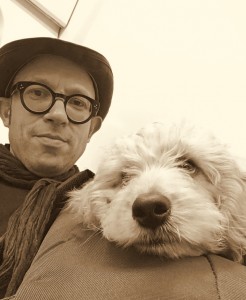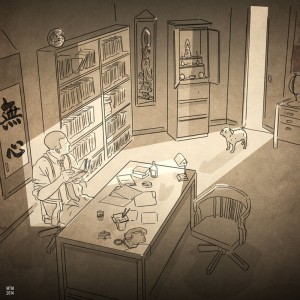 A man and his dog one day decided to go on a pilgrimage together.
A man and his dog one day decided to go on a pilgrimage together.
They headed north towards Kuan yin yuan in the Chao province of China where the great Chan (Chinese Zen) master Zhaouzhou, aka Joshu, was said to reside.
The man hoped to have an audience with this venerable guru who was now in his nineties. He hoped to finally lay to rest some of his most pressing doubts and worries.
After months of arduous travel, he arrived at Zhaouzhou’s temple and sat down with the great teacher, his four-legged companion at his side.
Bowing, he put forward the question that he had been wrestling with for as long as he could remember: “Tell me,” he said, “does my dog have a soul?”
Zhaouzhou looked at the dog, then back to the pilgrim, replying: “No.”
**

This is a famous koan, sometimes called the Mu Koan.
Mu in Japanese (Wu in Chinese) means “no”, or “not have” or “without”. The Mu Koan is the often the first to be given to trainee Zen monks to meditate on.
They do this sometimes for months, or even years.
It is also the “First Case” in the 13th century koan collection The Gateless Gate or The Gateless Barrier. Some believe it to be the first and only barrier/gate needed in order to attain enlightenment.
Enlightenment is a now a very old-fashioned, out-of-date word and concept in our largely secular world. But if by enlightenment we mean a way to better understand and cope with our deepest fears and worries, our own Mu-ness (i.e. nothingness) then enlightenment is still, whatever you call it, the only game in town. If this is true, if it is the only game in town, then let’s play it.